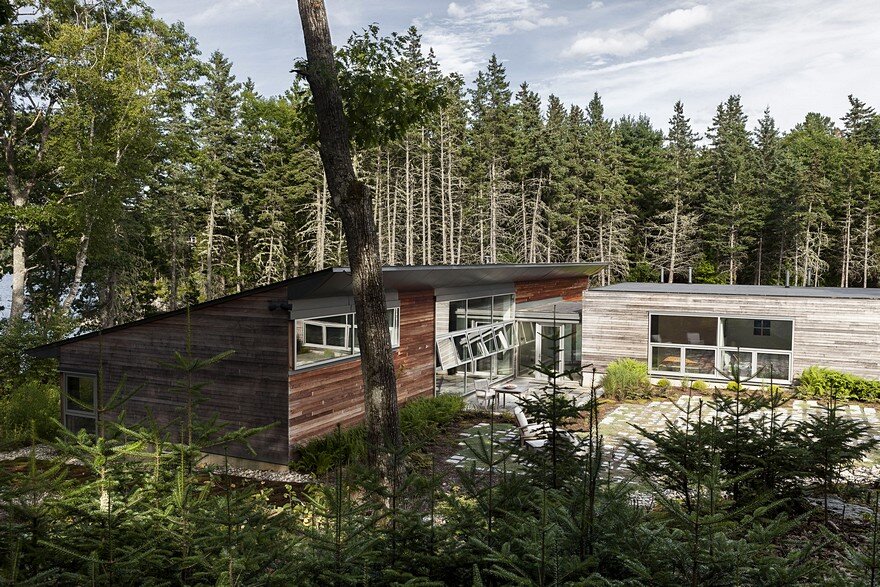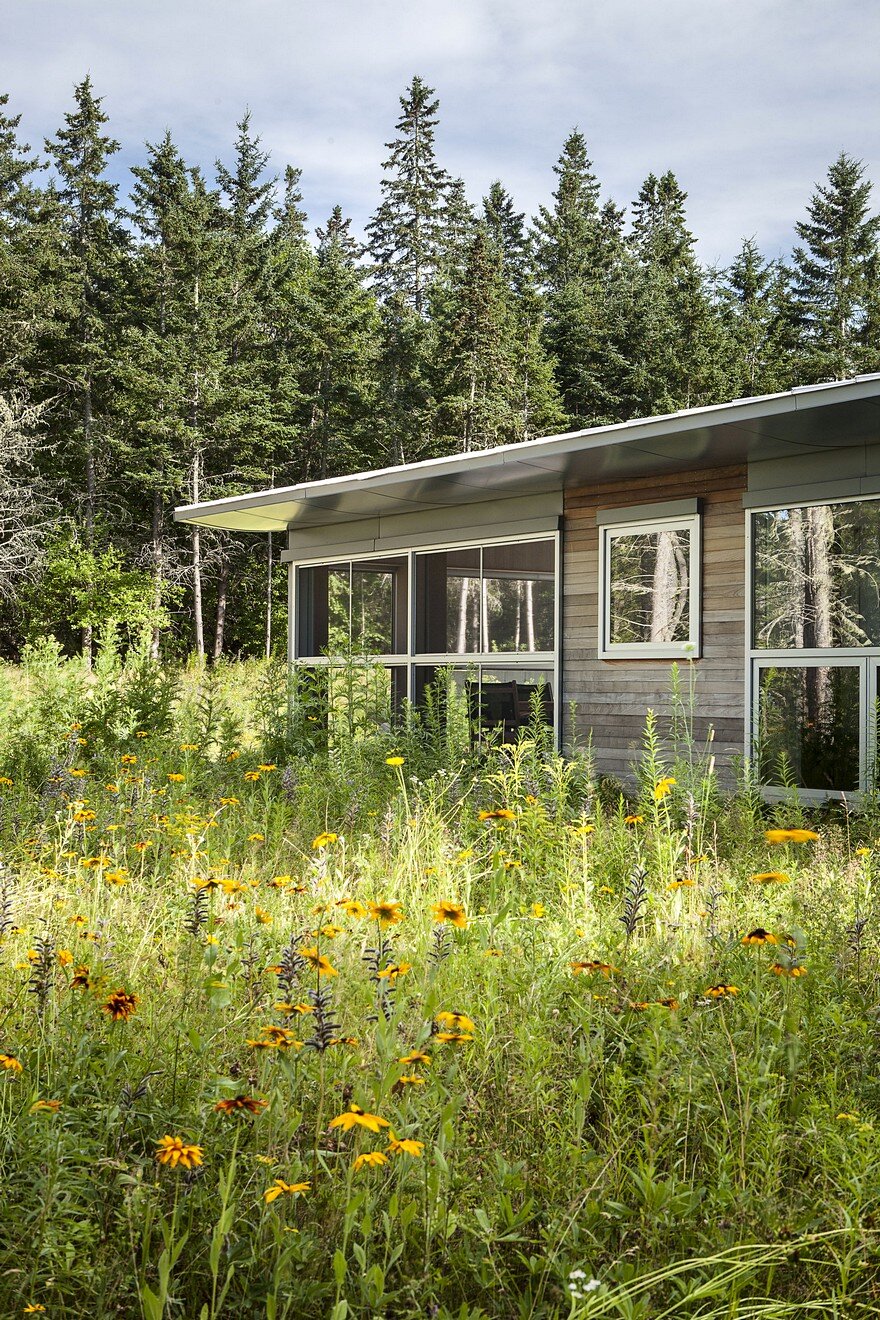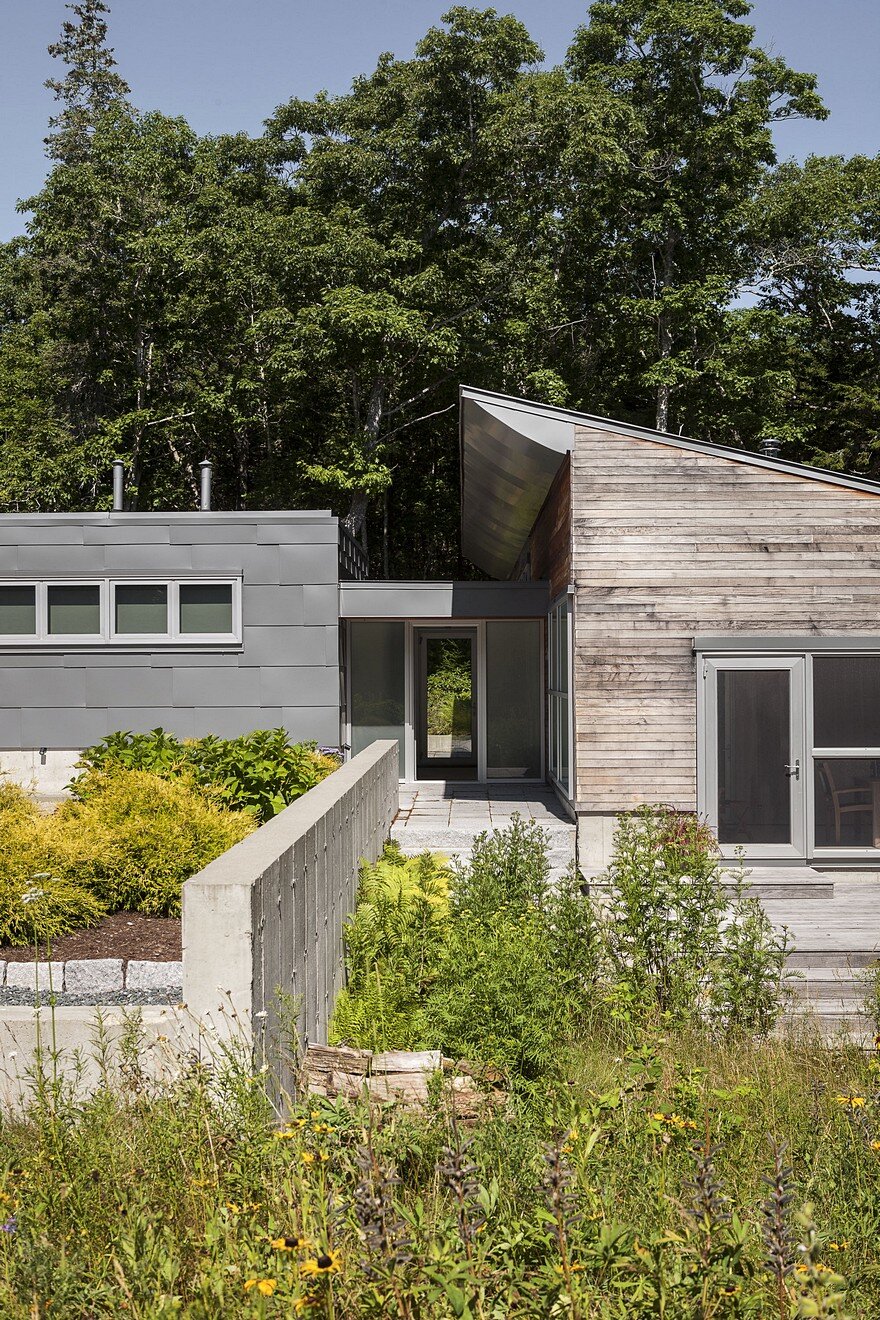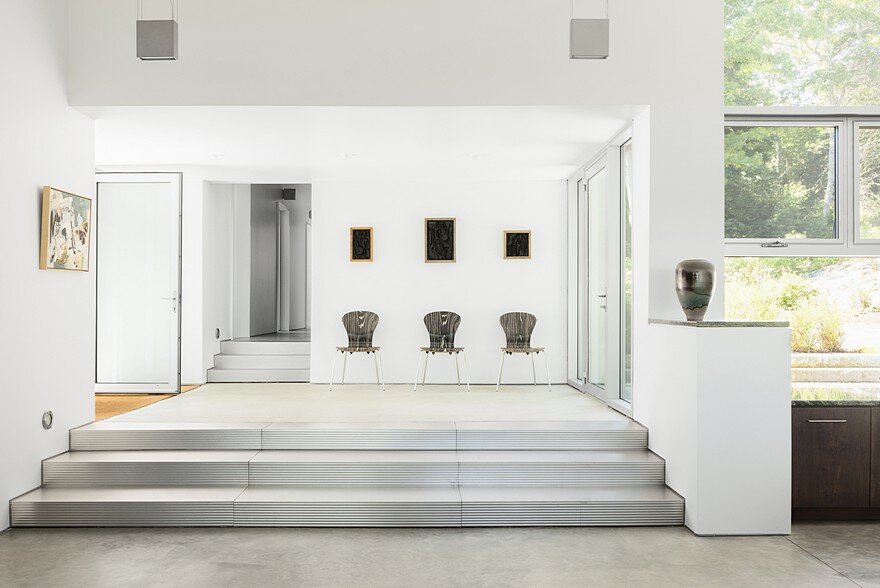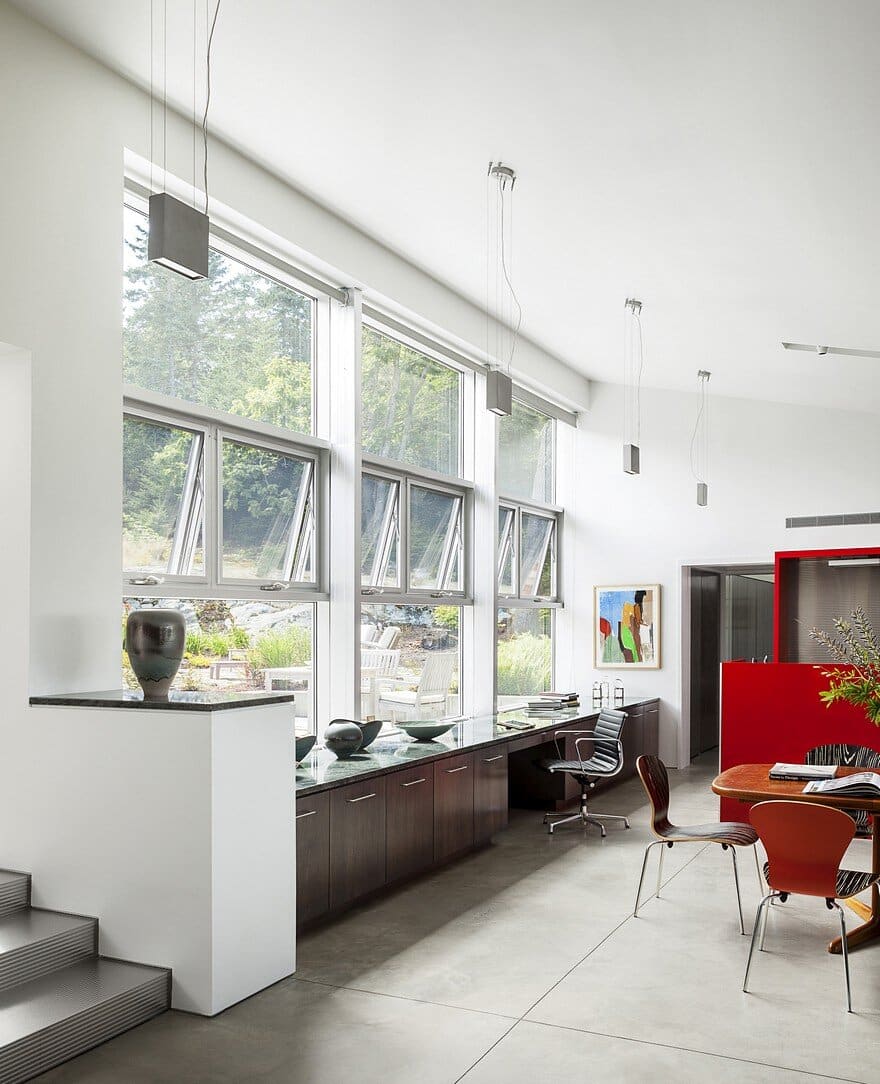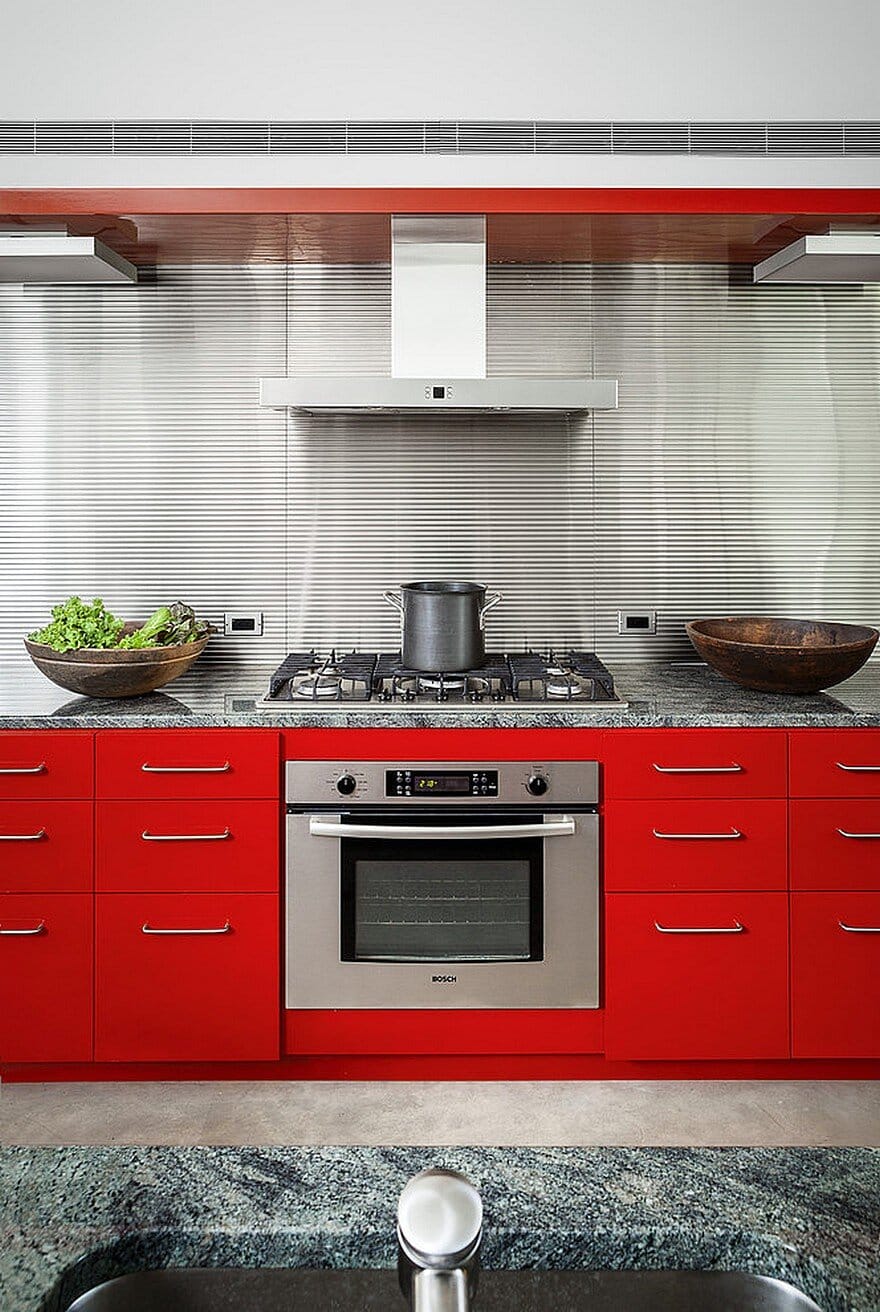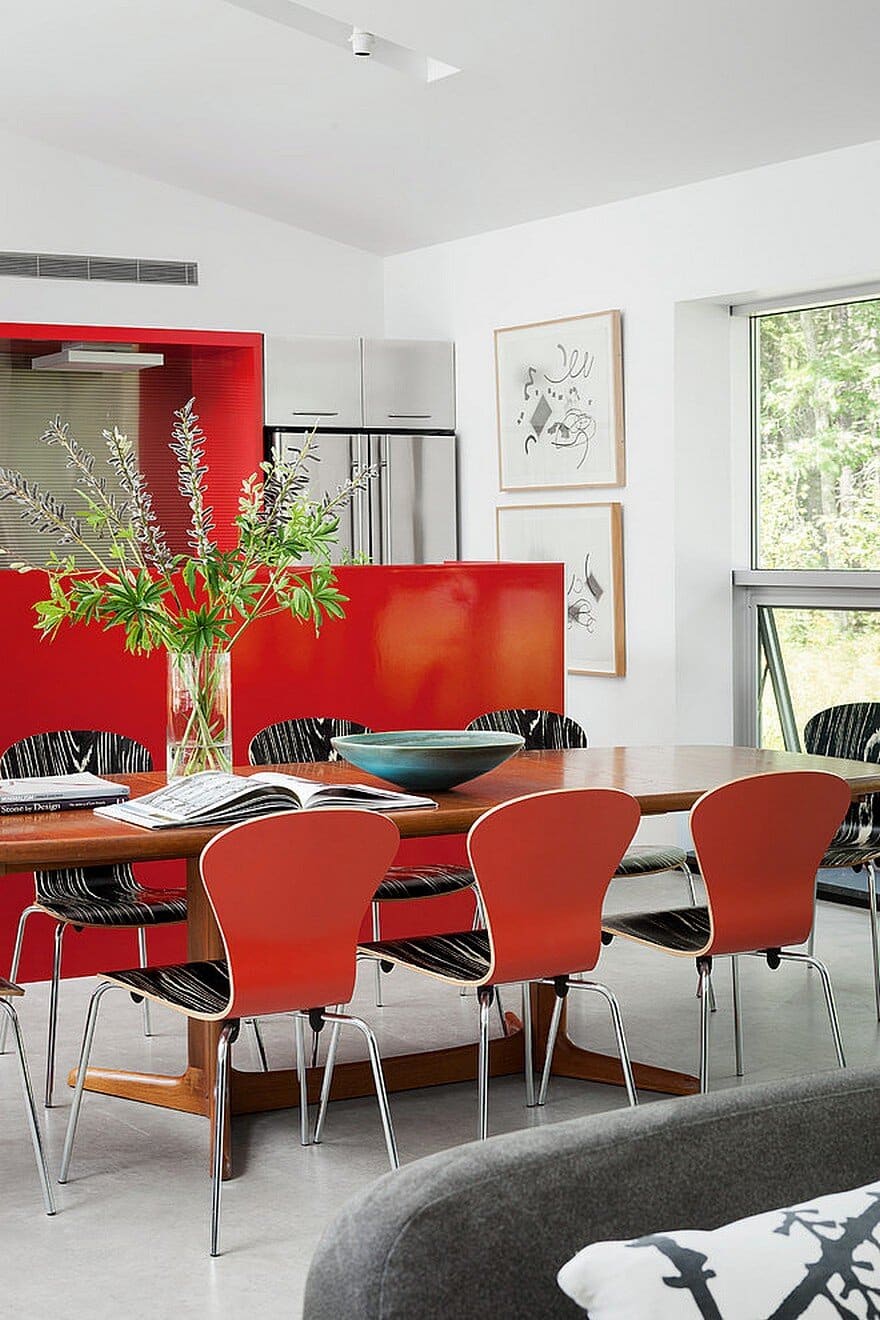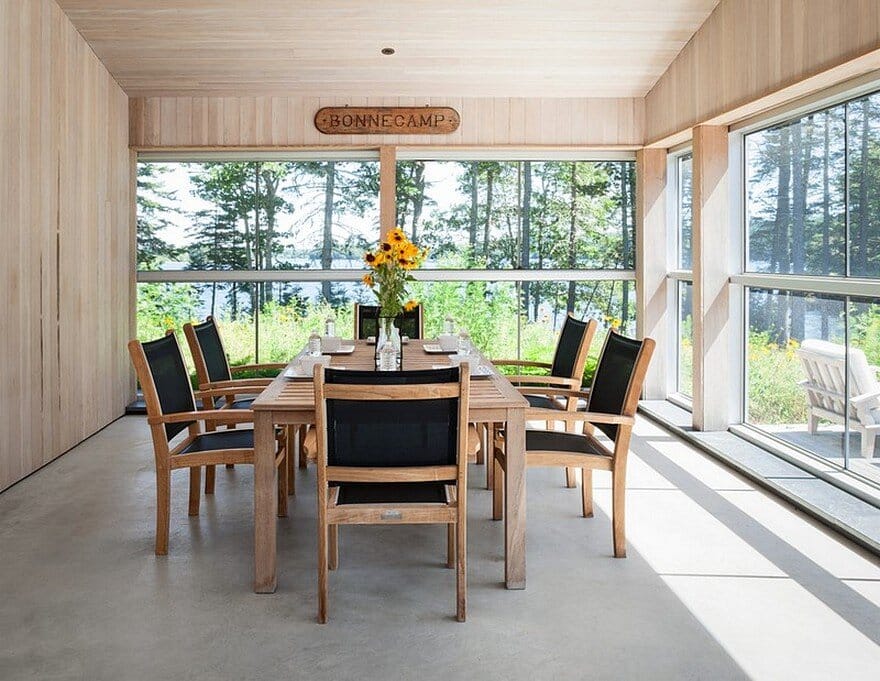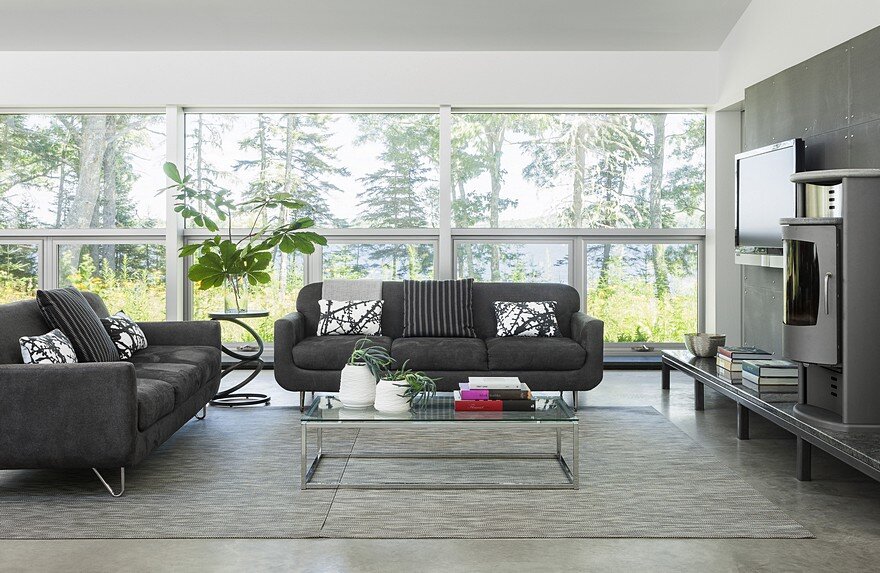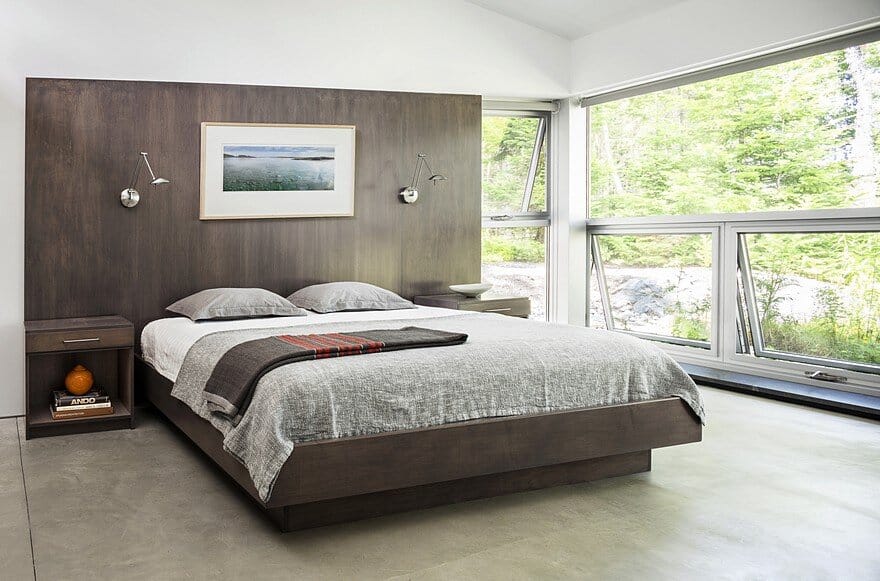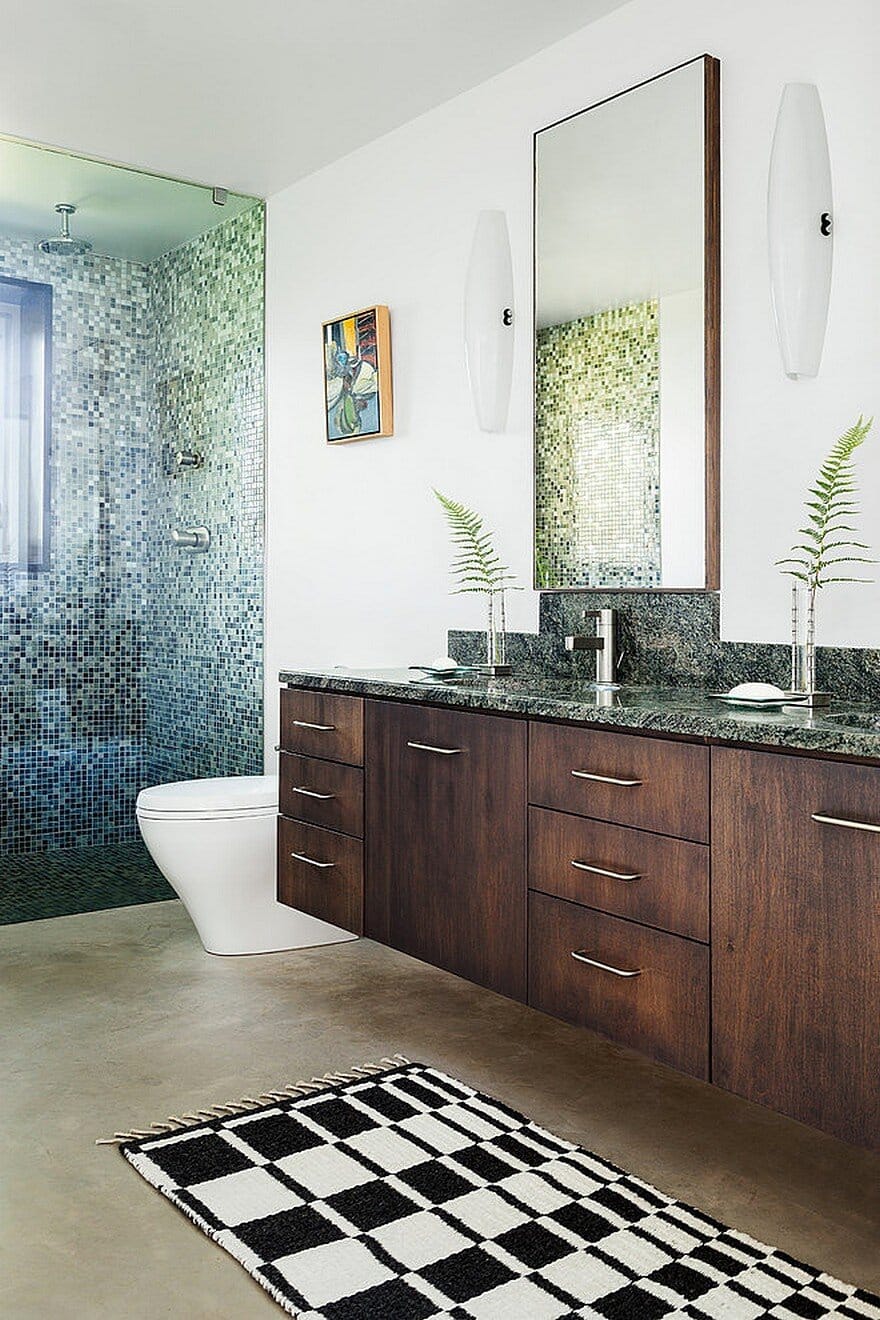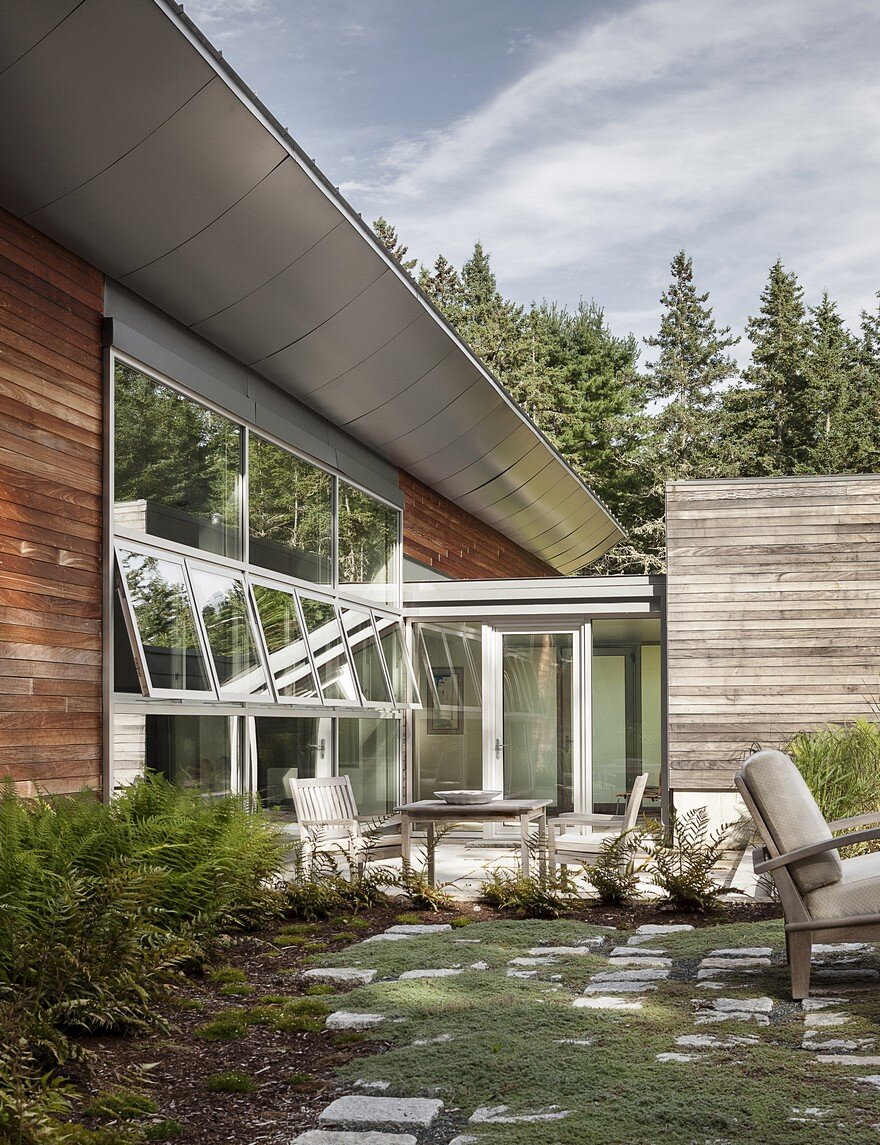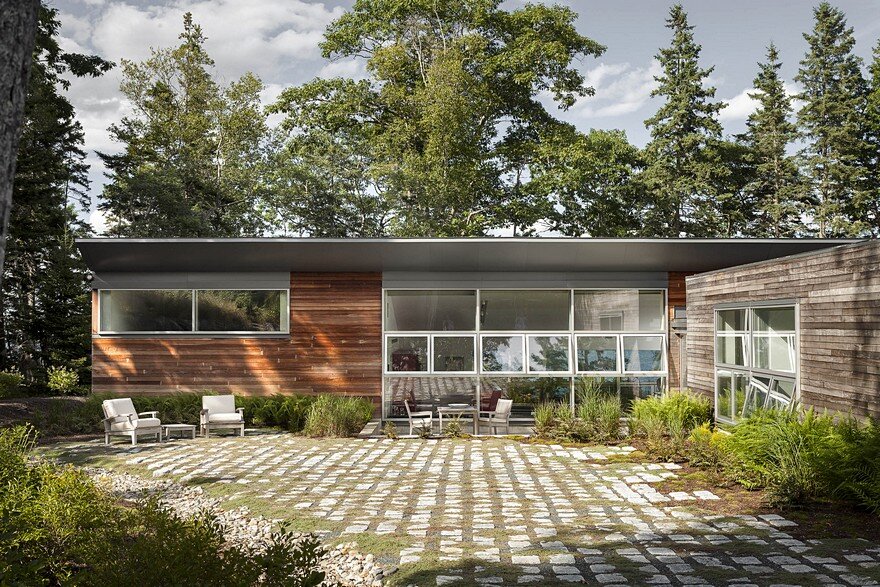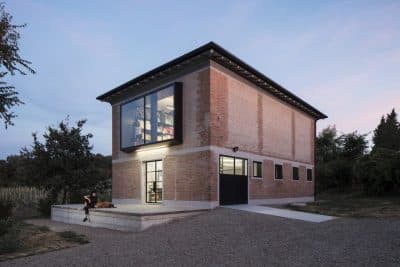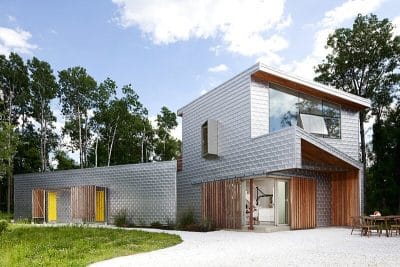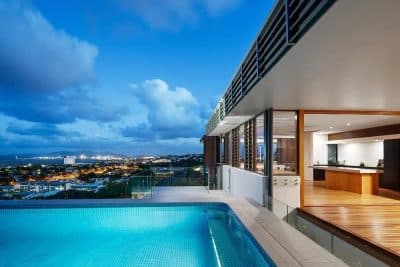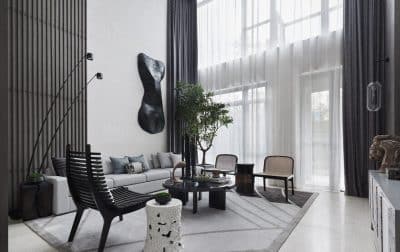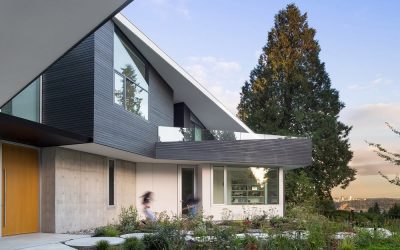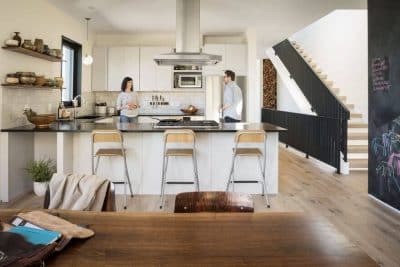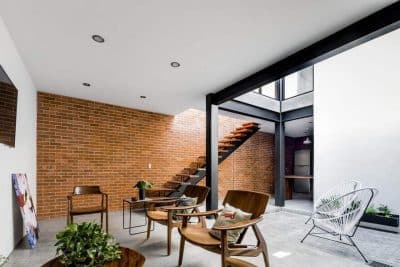Project: Maine Contemporary Retreat / House on a Cove
Architects: Elliott Architects
Architect in Charge: JT Loomis
Project Team: Bruce Norelius, AIA; Matt Elliott, AIA
Location: Brooksville, Maine, United States
Photography: Trent Bell Photography
Text by Elliot Architects
This 2,500 square foot house responds to the clients’ desire for a contemporary retreat, low maintenance home that is open and light-filled. Fronting Smith Cove, a secluded deep water anchorage ideal for boating and kayaking, the site is densely wooded with filtered ocean views to the north. It slopes gently towards the water and is interspersed with ledge outcroppings.
Natural light informed the section of the house, with high south-facing windows and an inclined roof on the backside that draw light into the narrow bar that overlooks the ocean.
A variety of outdoor spaces, including a screened porch and sunken terrace, animate the site at different times of the day. The house is low-slung and quietly recedes into the landscape; at times it seems a ruin, in danger of being consumed by the native groundcover. From the entry, little is revealed, but once inside the site reasserts itself. The vegetation, in such close proximity to the house and seen through low windows, intrudes upon the internal space. The minimalist interiors and cool color palette welcome it.
Industrial components were used throughout the house, inside and out. These include a commercial curtain wall system, polished concrete floors, stainless steel and zinc wall panels, and textured stainless steel stair treads. Detailing is reductive, supporting the minimalist aesthetic.
The exterior is clad in painted aluminum panels and unfinished wood that will gray over time. The materials, while cool and industrial, direct attention away from themselves and toward the natural environment. The kitchen is the exception, which in bright red provides a colorful and unexpected counterpoint to its more neutral surroundings.
This Maine contemporary retreat follows the contours of the site, stepping with it to maintain a direct relationship to the topography. Material choices, inside and out, were driven by a desire for minimal maintenance and for their ability to merge with the landscape. The landscaping, consisting exclusively of regional plants, arrays vegetation tight against the exterior envelope further obscuring the distinction between inside and out.

